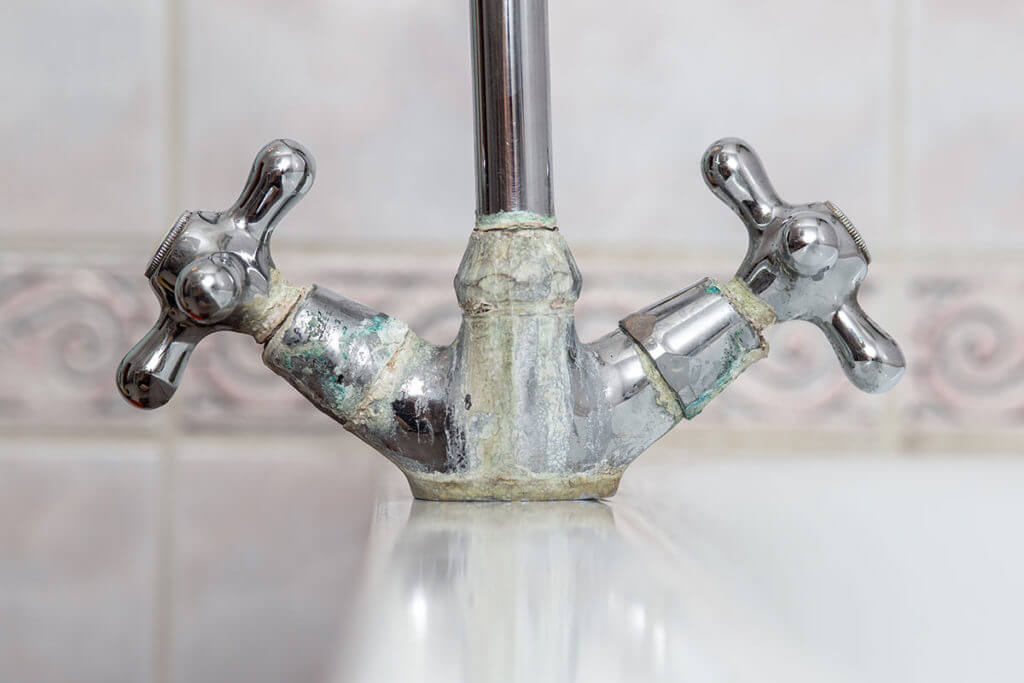Hard water in your home isn’t a health risk, but it can still be inconvenient. It may make appliances and pipes work less efficiently, leading to higher energy bills and shorter lifespans.
Hard water may not pose a health risk, but it can still significantly affect your home. From the functionality of your appliances to the cleanliness of your dishes and the condition of your plumbing, hard water can be pretty impactful.
If the glass in your home has hard water stains, visit this article to learn how you can tackle the issue without damaging the glass.
Continue reading to learn about the five ways hard water affects your home:
1. Dry Skin and Hair
Hard water contains naturally high concentrations of minerals like calcium and magnesium that nourish our bodies. Still, when combined with soaps and detergents, it can create havoc for skin and hair care products.
Soaps and detergents don’t lather well, leaving an unsightly film behind on skin and hair, causing dull, lifeless locks or dry, itchy rashes; also, hard water residue can accumulate on sinks, bathtubs and linens, leaving them looking dirty and grimy.
Over time, hard water build-up can clog pores and worsen existing conditions like eczema. Many find relief from hard water’s adverse effects by installing a water softener – this also saves energy costs as appliances require less heat to function effectively.
2. Cloudy Dishes
Hard water contains minerals – especially calcium and magnesium — that don’t mix well with soap, making dishes appear cloudy after washing as detergents couldn’t rinse properly.
As such, this could explain why it may be more challenging than normal to achieve a satisfying lather when bathing, and laundry seems to take longer to finish than it used to.
Installing a water softener in your home is the ideal way to protect against this. Water softeners remove calcium and magnesium from your water before it enters your house, so no more worrying about soap scum, stained glasses or residue build-up forming on them.
Plus, installing one will prevent costly repairs to appliances like your washing machine and dishwasher!
3. Clogged Plumbing
Hard water does not pose any direct health risk, yet it can still present various issues, which can be frustrating. Showerheads can become coated in chalky white deposits; washing machines and dishwashers wear out faster; it may be difficult to get soap to foam effectively when using hard water, etc.
Hard water is harmful to your plumbing, too. Calcium deposits form inside pipes like plaque in arteries and restrict water flow, causing clogs or even total blockages of drainage systems. If left untreated, hard water could severely impact your home’s plumbing systems and infrastructure.
A water softener can be an invaluable investment for your home, providing protection from harmful minerals while simultaneously saving on repair bills down the line and energy by lowering utility bills.

4. Discolored Clothes
Minerals that cause plumbing issues and leave your hair and skin feeling parched can also discolor clothing. Hard water in your home contains high levels of calcium and magnesium, which don’t mix well with detergents, meaning they cling to clothing, leaving white or gray streaks behind.
Hard water contains minerals that bind with fabrics, leading to colors in dark clothing fading over time. Furthermore, hard water minerals may form difficult-to-remove stains, such as iron and manganese deposits that appear yellow or brownish.
Good news — it is possible to reduce the effects of hard water in your home! The first step should be testing it to assess its hardness — you can use a DIY hard water test kit available at home improvement stores to do this.
5. Damaged Appliances
Hard mineral deposits on or around your faucet fixtures indicate that your pipes have become compromised, restricting water flow and potentially leading to clogs or breakages in the system. These deposits limit water flow and could eventually result in major problems, including clogs and breaks in their pipe system.
Hard water can also damage and shorten the lifespan of your appliances without you even realizing it. Over time, minerals found in hard water may clog your appliances’ working parts, forcing them to work harder than necessary, increasing energy bills significantly and costing you more in replacement costs in the future.
Home remedies like vinegar can provide temporary solutions, but it’s best to install a water softener for long-term issues. This device will remove hard minerals and treat your water so that it does not harm appliances or leave behind scum-laden residues.






